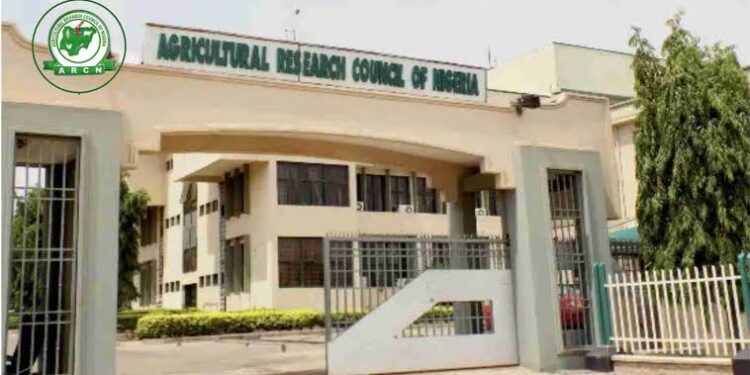The Agricultural Research Council of Nigeria (ARCN) has revealed an agenda designed to strengthen agricultural research governance and reposition the sector to better serve national food security goals.
The Executive-Secretary of ARCN, Dr Abubakar Adamu Dabban, speaking at the maiden National Stakeholders’ Forum on Agricultural Research Capabilities in Abuja, said the council had begun working with stakeholders to drive four priority reforms in the nation’s agricultural research.
He mentioned the reforms to include the development of a second-generation strategic and operational plan, a review of conditions and schemes of service for agricultural institutions, the implementation of the ARCN (Amended) Act 2021, and an update of management guidelines last revised in 2009.
The event, jointly convened by ARCN and the International Institute for Tropical Agriculture (IITA), brought together research leaders, policy makers, and development partners, with support from the Committee of Directors of Research Institutes (CODRI) and the National Committee of Heads of Colleges of Agriculture and Related Disciplines (NACHCARD).
Dabban commended the contributions of Nigeria’s research community and international partners, including CGIAR, ECOWAS, and AATF. He noted that agriculture remained under pressure from climate change, population growth and market challenges.
He stated that stronger collaboration, better governance, and investment in human capacity were critical to transforming food systems.
He proposed that the stakeholders’ forum be convened annually to ensure continuity, accountability and long-term planning.
“We have already commenced engagements with stakeholders to advance the following priorities: development of the second-generation strategic and operational plans for the ARCN; revisiting the conditions and schemes of service for ARCN, NARIs, and FCAs; revisiting the report of the Ministerial Committee on the Implementation of the ARCN (Amended) Act 2021 to ensure its full implementation; and the immediate review and update of the Guidelines for Management of NARIs and FCAs (2009).
“Nigeria’s agriculture stands at a crossroads; challenged by climate change and population growth, yet energised by the promise of science, innovation and technology to drive food security and transform livelihoods.
“To seize this moment, we must strengthen research governance, invest in human and institutional capacity and foster collaboration that extends nationally, regionally and globally,” he said.





































